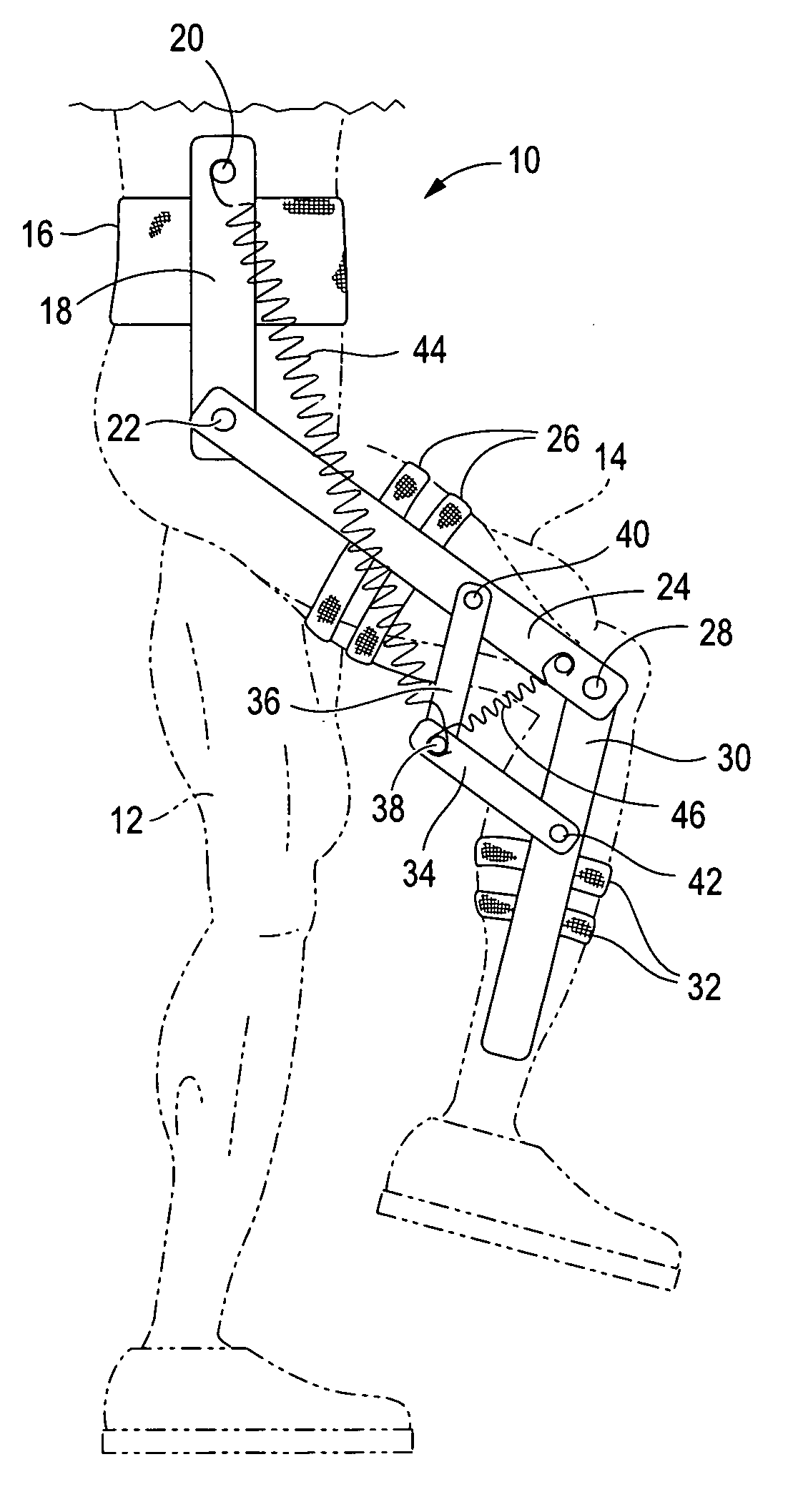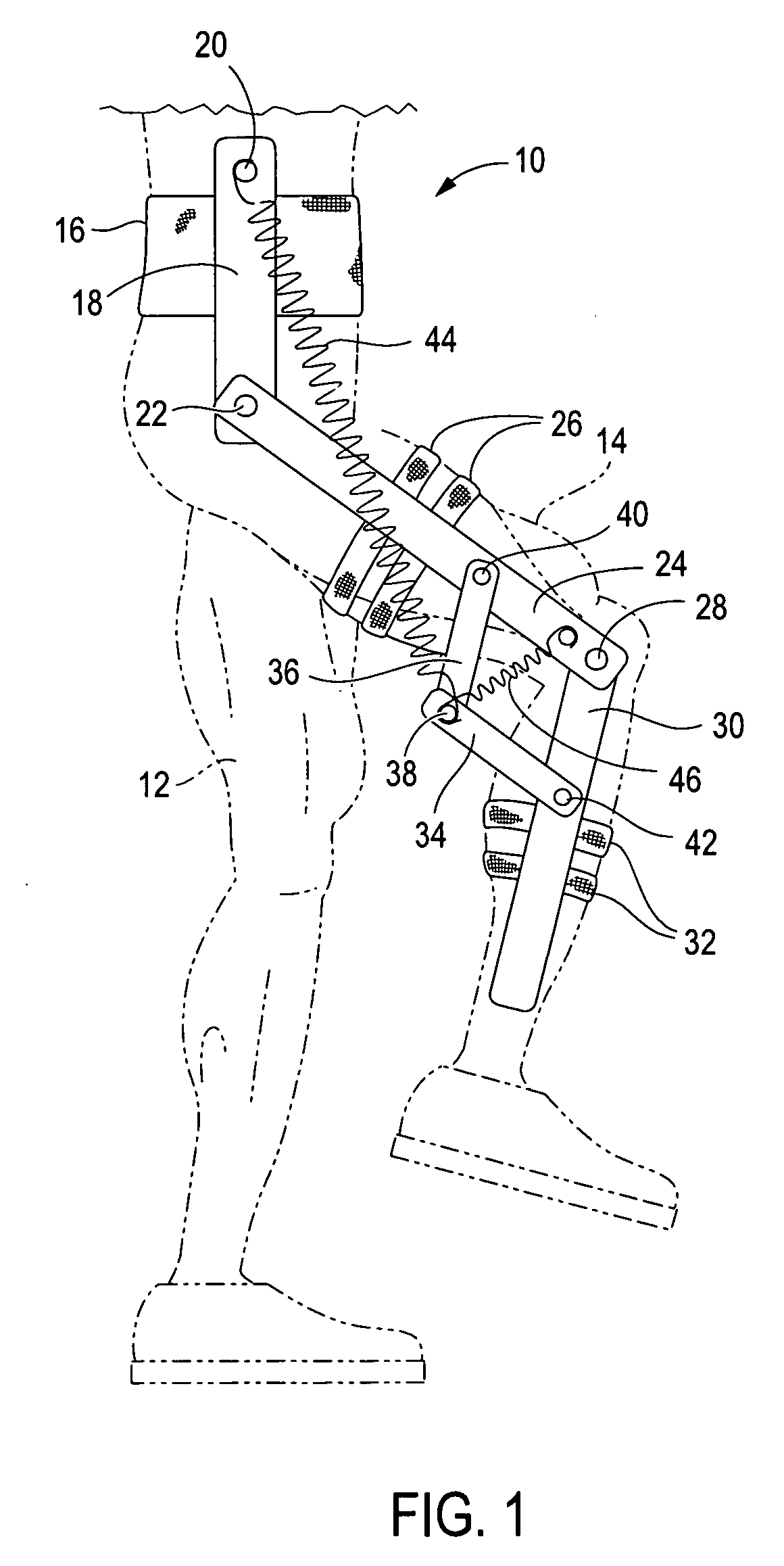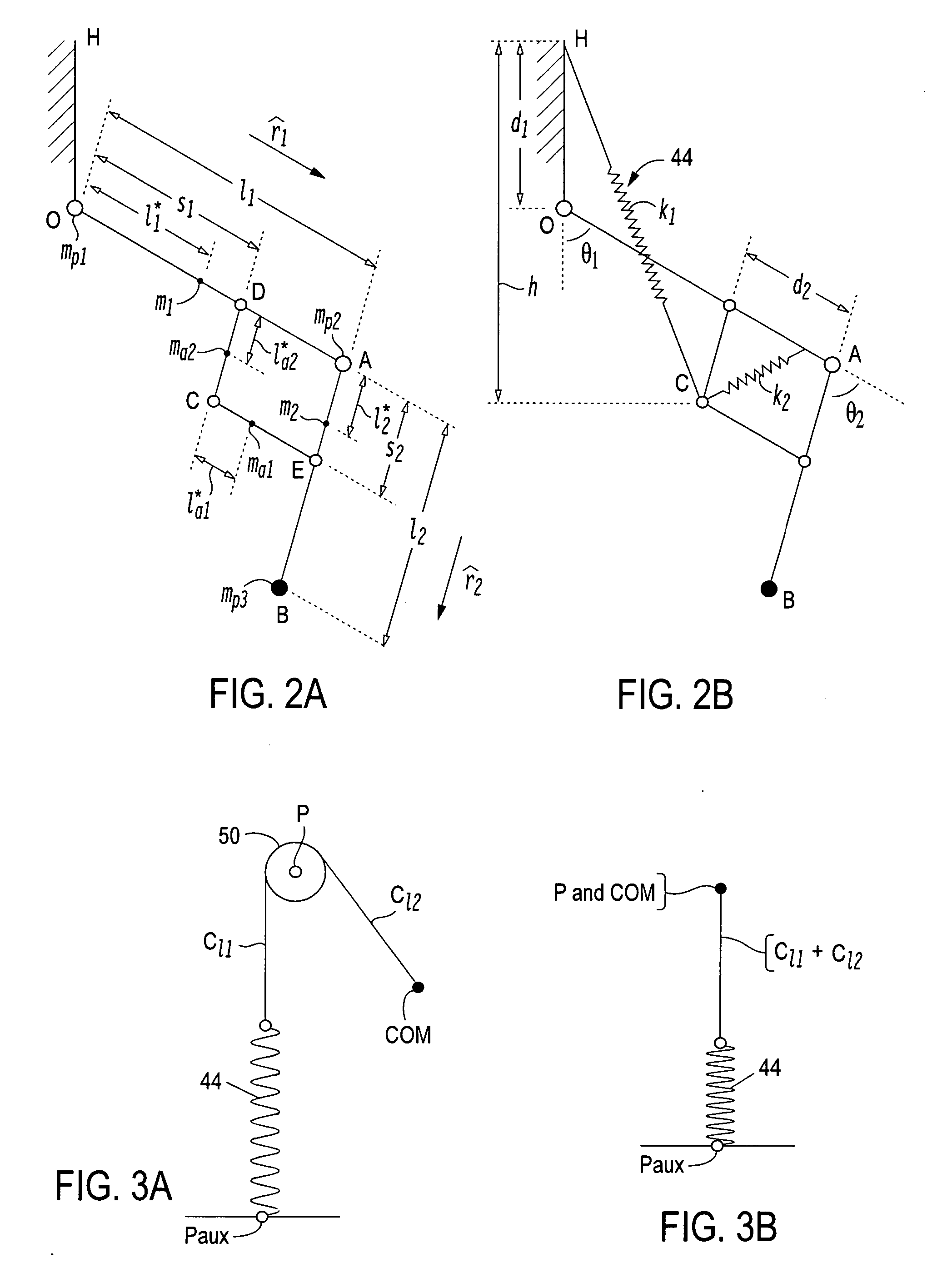Gravity balanced orthosis apparatus
a gravity-balanced orthosis and apparatus technology, applied in the field of methods and passive orthosis apparatuses, can solve the problems of impaired motor control, severe muscle weakness of people with neurological injuries, and muscle weakness of people with severe muscle weakness, and achieve the effect of reducing the effort needed
- Summary
- Abstract
- Description
- Claims
- Application Information
AI Technical Summary
Benefits of technology
Problems solved by technology
Method used
Image
Examples
example 1
Two Degrees of Freedom
[0024] The two degrees of freedom apparatus described is for use in full or partial support of a paretic limb i.e. a leg or a trunk, to help reduce the effect of gravity on the patient's motion. The present invention overcomes the problem of supporting the weight of the afflicted member during a dynamic activity like walking here the weight of the leg continuously shifts by balancing the weight of the leg in all configurations, thereby putting the leg in, so to speak, a state of neutral equilibrium.
[0025] We will use FIGS. 1, 2a and 2b to demonstrate the calculation of the COM and the parallelogram structure as well as the selection of springs and their points of attachment for a system comprising two articulated members. The described system provides the design for an exoskeleton device for attachment to a patient's leg to assist such patient in walking.
[0026] Referring to FIG. 1 there is schematically illustrated a basic system according to the present inv...
example 2
Three Degrees of Freedom
[0046] More than two articulated members are also within the scope of this invention. The calculation of the COM and the selection of spring constants will next be illustrated in connection with the design of a 3 degree of freedom system for supporting and training device impaired subjects in sitting and getting up from a chair, with reference to FIGS. 4, 5 and 6.
[0047] The term three degrees-of-freedom is used to refer to the motion of the body at the hip, knee, and ankle. In the present design, the device is an orthosis device with straps or other convenient attachments between the corresponding moving segments of the machine and the patient's leg. In this example, the following assumptions are made:
(i) the motion of the body is in sagittal plane;
(ii) both legs have the same motion during the sit to stand cycle (STS) motion; and
(iii) the device links are lightweight and do not add significant mass to the moving.
[0048] The human body can be modeled ...
PUM
 Login to View More
Login to View More Abstract
Description
Claims
Application Information
 Login to View More
Login to View More - R&D
- Intellectual Property
- Life Sciences
- Materials
- Tech Scout
- Unparalleled Data Quality
- Higher Quality Content
- 60% Fewer Hallucinations
Browse by: Latest US Patents, China's latest patents, Technical Efficacy Thesaurus, Application Domain, Technology Topic, Popular Technical Reports.
© 2025 PatSnap. All rights reserved.Legal|Privacy policy|Modern Slavery Act Transparency Statement|Sitemap|About US| Contact US: help@patsnap.com



